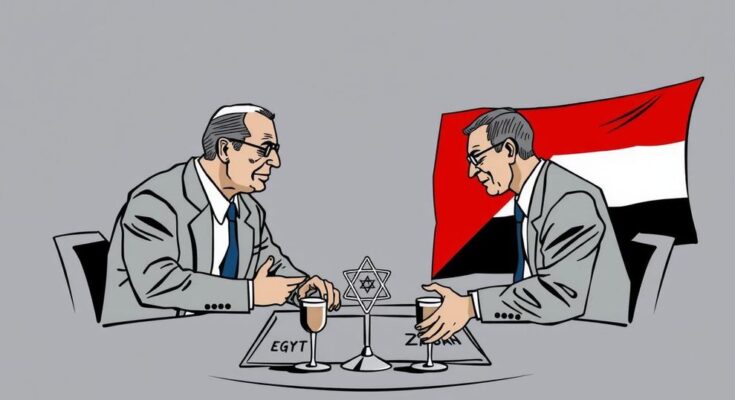Turkish Foreign Minister Hakan Fidan has warned that Israel is attempting to displace PA Arabs from Gaza and the West Bank, risking further instability in the region. He criticized Netanyahu’s tactics in ceasefire talks and highlighted the necessity for dialogue between the Assad regime and the Syrian opposition to ensure regional stability. Fidan cautions that military escalations may follow the upcoming US elections if diplomatic resolutions are not achieved.
In a recent interview with Hurriyet, a prominent Turkish newspaper, Turkish Foreign Minister Hakan Fidan expressed grave concerns about Israel’s purported strategy aimed at pushing Palestinian Authority (PA) Arabs out of the Gaza Strip, Judea, and Samaria. He remarked that “Israel’s main goal is to force the Palestinian people from Gaza into Egypt and from the West Bank into Jordan,” warning that such actions could lead to increased instability in the region. Furthermore, Fidan posited that following the upcoming United States elections, Israel may undertake military actions that extend beyond its current engagements, citing the potential for Prime Minister Benjamin Netanyahu to target Iran’s nuclear capabilities. He added, “Netanyahu may take steps to destroy Iran’s nuclear capacity. If this happens, the risk will grow that the conflict will expand to other countries.” The Turkish Foreign Minister criticized Netanyahu’s handling of the ceasefire negotiations, stating that Netanyahu employs the negotiation process merely as a tactic to delay while simultaneously advancing military objectives. Despite recognizing some progress in ceasefire discussions between Israel and Hamas, Fidan conveyed that Hamas views the ceasefire as a vital step towards fundamentally altering Israel’s course of action. During their last meeting, discussions encompassed the situation on the ground, the importance of a ceasefire, humanitarian aid requirements, and pathways to intra-Palestinian reconciliation, as stated by Fidan. Turning to Turkey’s bordering country to the south, Fidan indicated that Syrian President Bashar Assad has shown reluctance to normalize relations with the Syrian opposition and, by extension, with Turkey. He warned that Syria’s failure to address its internal challenges could result in escalating regional instability. Fidan remarked, “In this environment of deconflict, Turkey wants to see the Syrian regime and the opposition create a political framework on which they can agree. It is very important that the regime provides a safe and stable environment for the people, including the opposition.” Fidan’s remarks come in the wake of comments made by Russian Foreign Minister Sergey Lavrov, who signaled Moscow’s willingness to renew mediation efforts concerning the relationship between Turkey and Syria. However, Fidan insisted that the Syrian regime must first initiate dialogue with its opposition factions and achieve a consensus before further normalization can occur, stating, “Nevertheless, it appears that Assad and his allies are not yet willing to seek an agreement with the opposition, which hinders further normalization.”
The ongoing Israeli-Palestinian conflict has seen numerous tensions surrounding territorial disputes and military actions. The Palestinian Authority oversees parts of the West Bank, while Hamas governs Gaza. Israel’s military operations in these areas often lead to complicated dynamics involving the regional surrounding nations, particularly Turkey and Syria. The geopolitical landscape is influenced by responses to military actions, calls for humanitarian support, and the positions of neighboring states regarding the stability of the region.
In summary, Turkish Foreign Minister Hakan Fidan has raised significant concerns about Israel’s plan to displace Palestinians, casting a shadow over regional stability. He further criticized Prime Minister Netanyahu’s tactics during ceasefire negotiations and highlighted the pressing need for dialogue between the Syrian regime and opposition to foster a stable environment in Syria. Fidan’s observations underscore the complex interactions between military strategy, diplomatic negotiations, and regional peace efforts.
Original Source: www.jewishpress.com




